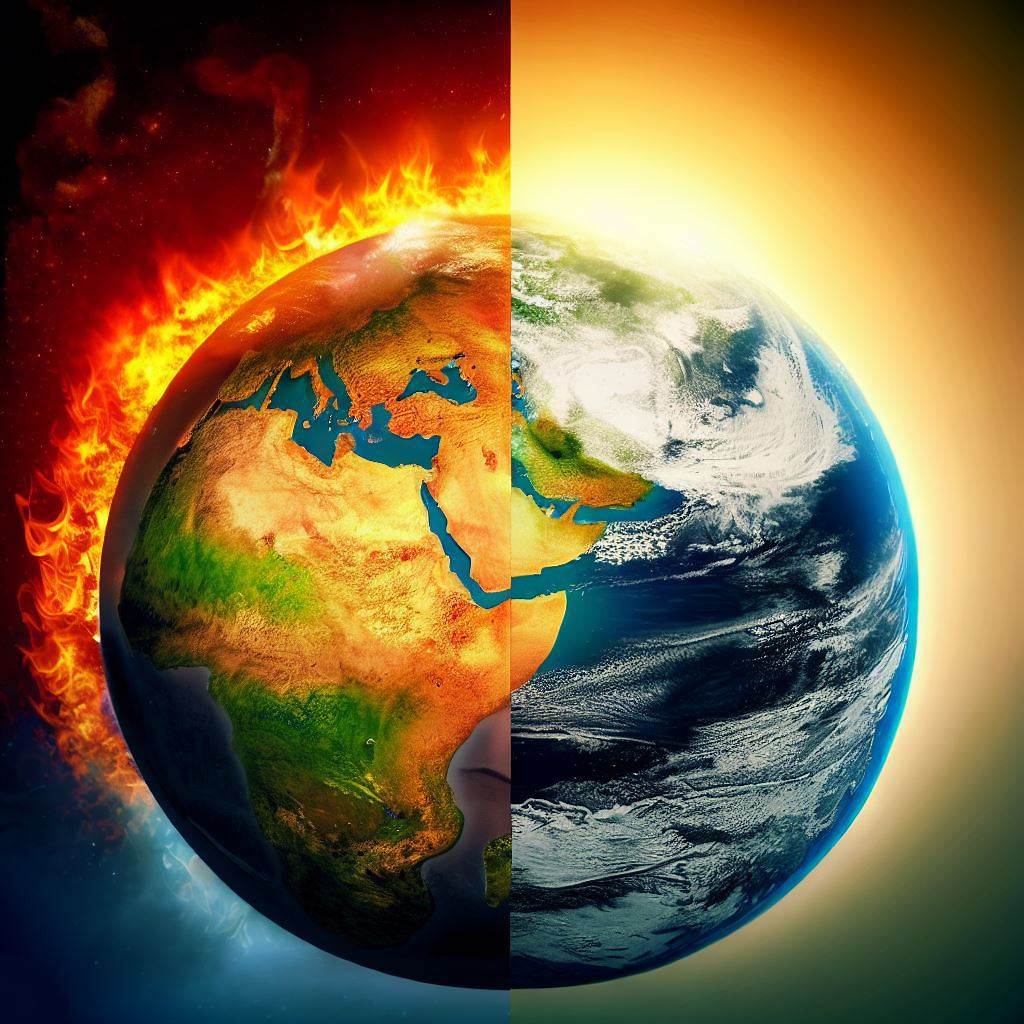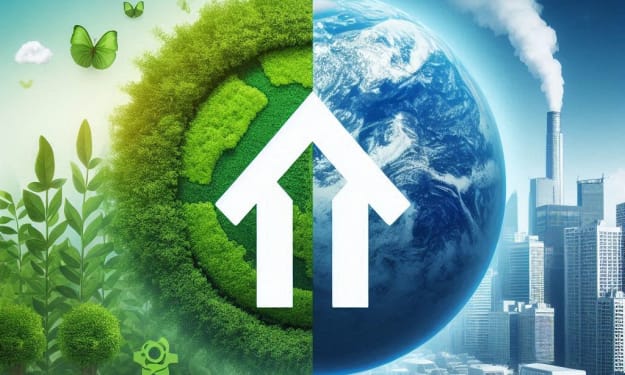Climate Change Misunderstanding
Why climate change is happening and how it affects Earth's nature

Climate Change: The Truth and Myths
We are all tired of the misconceptions surrounding climate change. Join me as I unravel the truth and shine a light on the biggest misunderstandings surrounding climate change. Here, you will gain a better understanding of this global issue through scientific research, smart insight, and easy-to-understand explanations. Discover the real story behind climate change today and empower yourself with knowledge.
Are you familiar with comments online that claim climate change is natural, citing examples like palm trees in Antarctica during the Ice Age as examples? I understand that these comments may be frustrating, but let's remember we all begin with different levels of understanding, shaped by external forces. Let's instead use this opportunity to educate and dispel misconceptions. It is possible that people making these comments believe that climate change isn't happening; therefore, we should use this moment to expand our knowledge and discard such misinformation.
Defeating the Misconception:
Hey everyone, I'm Elenka, and I'm here to explain a few things. Climate change is shaped by natural forces that have shaped Earth's climate throughout history. Scientists know these cycles well. All climate models that scientists use take these effects into account when dealing with human-caused climate change.
When human activities are included in climate models, however, even the natural mechanisms remain approximate. It is not possible to explain the sudden and significant changes in the climate since the industrial revolution, particularly in the latter half of the 20th century, using natural forces alone.
The Role of Human Activities:
To understand why, we need to consider human activities as well. It is important to examine Earth's climate in a broader context and how imbalances can cause it to change. As we learn more about the natural forces, we will understand why the current changes to Earth's climate are not solely due to these natural forces but are a result of human activity.
How Earth's Climate Works:
Earth's climate is a complex system, but for our purposes, let's focus on temperature. Temperature is a measure of how fast atoms in a substance move. Higher temperatures result from atoms moving faster, while lower temperatures result from atoms moving slower.
Whenever we heat something, we essentially transfer energy from one system to another, increasing its temperature and forcing its atoms to move faster. The Sun provides most of Earth's climate system's energy. During the day, sunlight reaches Earth, either reflecting back into space or being absorbed by the land, oceans, and atmosphere. The absorbed energy warms our planet.
A warm Earth's surface transfers heat through infrared radiation, mainly to other substances, like greenhouse gases like carbon dioxide and methane. When land emits energy absorbed from sunlight, it is absorbed by greenhouse gases like carbon dioxide and methane. As a result, these gases can re-radiate the absorbed energy, effectively warming the atmosphere, land, oceans, and everything else.
Understanding the Greenhouse Effect:
Climate change is a natural phenomenon that is known as the greenhouse effect. Without it, Earth's average temperature would be much lower. Human activities, however, produce an excessive greenhouse effect, resulting in global warming. This affects various aspects of Earth's climate system, such as wind patterns, ocean currents, and precipitation.
In conclusion, the idea that natural forces and cycles are responsible for climate change is a false one. While these factors have influenced Earth's climate historically, they cannot explain the climate change that occurs today. As humans, we are responsible for a large proportion of the rapid and significant changes we observe in the climate. Understanding this distinction is crucial for coping with and mitigating climate change.
Thank you for reading!
About the Creator
Miss^_^San
Experience the ethereal style of a Free-Form poet. Dive into captivating stories filled with fantasy and mystery. Join me on this creative journey! 🌌📚
Enjoyed the story? Support the Creator.
Subscribe for free to receive all their stories in your feed. You could also pledge your support or give them a one-off tip, letting them know you appreciate their work.
Reader insights
Nice work
Very well written. Keep up the good work!
Top insights
Easy to read and follow
Well-structured & engaging content
Expert insights and opinions
Arguments were carefully researched and presented
Eye opening
Niche topic & fresh perspectives
Heartfelt and relatable
The story invoked strong personal emotions
On-point and relevant
Writing reflected the title & theme






Comments (3)
Really enjoyed this, Elenka! Sadly, it sometimes seems to me that although my generation was well and truly warned about about climate change when we were younger, we did nothing about it and that's resulted in the state of affairs we have now. I've personally been to cities whose "smog-domes" are now such a problem than no-one can get anything done in the summer months. That being the case, it defies belief that some people still claim global warming isn't anything we should be worried about. On the release of An Inconvenient Truth in 2006, I remember the director saying in interview: "When the crib's on fire, you don't sit around debating whether the baby is fireproof - but that's exactly how we're reacting to this issue!" At the same time, you strike a good balance here by reminding us climate change has always happened - it's just that mankind has sped it up. The Antarctic palm trees in your introduction took me back to one of my favourite passages from Steinbeck: "Once, fifty miles down the valley, my father dug a well. The drill came up first with topsoil and then with gravel, and then with white sea sand full of shells and even pieces of whalebone. There were twenty feet of sand and then black earth again, and even a piece of redwood, that imperishable wood that does not rot. Before the inland sea, the valley must have been a forest, and those things had happened right under our feet, and it seemed to me sometimes at night that I could feel both the sea and the redwood forest before it." Thank you for posting this article, and I'm looking forward to reading more from you here on Vocal!
Aw man, an AI article? That's sad, I liked your work...
Hello, AI is permitted on Vocal. It is a Vocal policy that content created with AI is identified as such at the start of the story/article. Your article/story has many hallmarks of AI-assisted/generated content. You can find the details of the Vocal policy here: https://vocal.media/resources/an-update-from-vocal-on-ai-generated-content, Please amend your piece to be in compliance. If you are not a Vocal+ member you will need to contact Vocal here ([email protected]) and ask them to edit your story/article/poem for you. If you don’t correct this the content may be removed by Vocal and/or you may be deleted from the platform.